What is a healthy balanced life? First, the World Health Organization defines “healthy” as a “state of complete physical, mental, and social well-being and not merely the absence of disease or infirmity.” I love this definition. It includes three interrelated characteristics of our health – body, mind, and social interactions. This means that we need to balance our lifestyle in a way that focuses and prioritizes nurturing all three of these characteristics. And it states that “healthy” is not merely the absence of diseases.
But the list is not complete. We also need to live with a purpose to improve healthy longevity. Harvard University researchers reported in JAMA Psychiatry that an increase in purpose decreased the risk of developing weak grip strength and slow walking speeds. Functional and overall health, especially as we age, are assessed using both these parameters (for more information, see these NIH articles on grip strength and walking speed). A University of Michigan research group found similar results. They found that a stronger purpose lowered all causes of death.
The conclusion from these and several other research studies suggest that having a well-balanced lifestyle with purpose lowers our risk of contracting several diseases, including Alzheimer’s.
But it takes planning and execution to meet this definition of health. It doesn’t just happen to us. I’ve met several people who might be in great physical condition but suffer from depression or anxiety. Or people who are mentally under complete control but are not physically healthy.
So how do we establish a well-balanced lifestyle? The following sections provide a summary of nurturing our bodies, minds, social interactions, and purpose in life. Click on the box to learn more about it. The last summary box covers a well-balanced lifestyle.
Nurturing Your Body
Our bodies keep us functional in life. Without a functioning body, we lose our mobility and the ability to do much of anything. A healthy functioning body may be the foundation of a healthy balanced life.
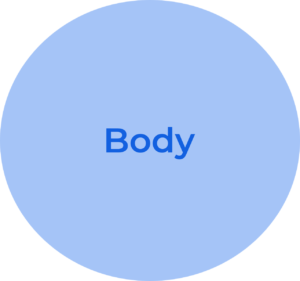 I was heading down a bad path in my forties. Fortunately, I my family doctor put the fear of God in me if I kept heading down that path. He suggested I might be using a walker by the time I was 60. And now that I’m 66 (at the time of this writing), I know he was spot-on. By the time I turned 50, I was overweight, ate whatever I wanted (no fruits or vegetables in sight), and my physical activity amounted to hoisting a beer.
I was heading down a bad path in my forties. Fortunately, I my family doctor put the fear of God in me if I kept heading down that path. He suggested I might be using a walker by the time I was 60. And now that I’m 66 (at the time of this writing), I know he was spot-on. By the time I turned 50, I was overweight, ate whatever I wanted (no fruits or vegetables in sight), and my physical activity amounted to hoisting a beer.
Today, I emphasize four focus areas to nurture my body – nutrition, physical activity, health checks, and a couple of supplements. I explain how to make your nutrition easy by following seven simple guidelines (without calorie counting). Physical activity doesn’t need to be complicated, either – brisk walking 30 minutes a day at least 5 days a week paired with a couple of resistance training days a week is all most of us need. And I will explain how.
The short story on supplements is this – if you follow the seven nutritional guidelines, you won’t need supplements, outside of maybe vitamin D in the winter months and protein. However, some evidence suggests a multi-vitamin for the senior age group may have a memory benefit.
Nurturing Your Mind and Brain
Our mind covers a lot of ground. It runs our bodies – no muscle does anything with the brain telling it to do so. It solves problems, keeps us out of harm’s way, and a host of other things. To handle all these tasks, we need to keep our minds sharp and our brains healthy. An argument can be made that the mind and brain are the true foundations of a healthy balanced life.
 I focus on three areas to keep my mind sharp and my brain healthy.
I focus on three areas to keep my mind sharp and my brain healthy.
The first is nutrition – again, what we eat fuels and maintains the brain. And if the fuel is inferior quality, then don’t expect high performance from my brain. Of course, that equates to mediocre performance for the rest of our body because the brain controls everything. And there is growing evidence that relates dementia and Alzheimer’s disease to what we eat.
The second focus area is continual learning. By continually learning, we keep our minds sharp. Solving puzzles, memorizing passages in books, and solving problems are great activities to keep our minds sharp.
The third area is our mood. If you find yourself continually in a stressed mood, then you need to do something about that. And that something can be meditation, relaxation techniques, or something as simple as thinking positive thoughts.
I’ve had a lot of stress in my life, and it took too long to start doing something about it. I had help from therapists and doctors to learn to meditate regularly. And, when I find myself thinking negative thoughts about something or someone, I immediately change that to a positive thought.
I provide much more here, including meditation sources and brain-healthy nutrition.
Nurturing Your Social Relationships
There is a growing body of evidence that relates positive social interactions to health and longevity. First, let me say that nurturing positive social relationships is not easy. It takes time, sometimes a lot of time and effort. But the payoff to our health and happiness is significant.
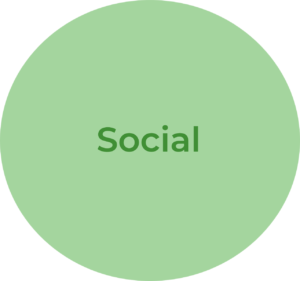
An article from the CDC points out that we are social animals by nature. The attention-getting statement in the article is that stronger social bonds increase our survival by a whopping 50%. And not only that. Strong social connections can help prevent heart disease, stroke, dementia, and depression. Additionally, these strong connections can help prevent death from chronic diseases (think Type 2 diabetes).
I’ve put together ways to develop and nurture positive social connections. The key word here is “positive.” If you attend a coffee group on Wednesday mornings and all you talk about are the perils in the world, then that may not be positive. In fact, negative thoughts can lead to anxiety, depression, and low self-worth. No one has time for that!
Nurturing Your Purpose
The growing body of evidence highlighted above clearly demonstrates that having a meaningful purpose in life is a large part of a healthy balanced life. A meaningful purpose has a positive effect on our health and mental well-being. An article published in Harvard Health goes so far as to state that living a purpose-driven life helps you live a longer, healthier life. But what is a meaningful purpose? While there is no right or wrong answer, there are guidelines that make a life purpose better.
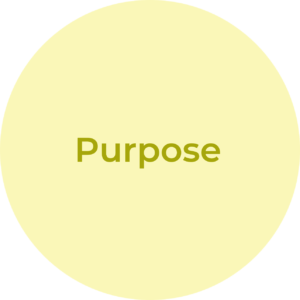 A purpose that has a positive impact on others is more beneficial. But at the same time, if you are a mid-career parent, you are likely focused on your providing for your family. So, keeping a job that pays a living wage and spending time with your kids may be the only purpose you have time for.
A purpose that has a positive impact on others is more beneficial. But at the same time, if you are a mid-career parent, you are likely focused on your providing for your family. So, keeping a job that pays a living wage and spending time with your kids may be the only purpose you have time for.
If time allows (remember, you need to factor in the other longevity characteristics like physical activity), consider expanding your purpose to helping others. You can easily do this by volunteering at the Boys and Girls Club or a food pantry.
If you want to learn more about developing a meaningful purpose, click the box.
One More Focus Area: Your Environment
The environment you live in isn’t something you think about – until you must. Your environment is where you live, sleep, work, shop, and find entertainment. If it’s a safe and healthy environment, then we easily focus on our body, mind, social relationships, and purpose. But if it’s not a safe and healthy environment, then we focus on the things that make it unsafe or unhealthy.

As the first example, if you live in an area with a lot of crime or pollution, then you won’t prioritize the characteristics you need to focus on. You must prioritize personal safety.
A second example is your work environment. You don’t like your job, but decide you’ll live a more fulfilled life after 30 years when you retire. Those 30 years will drag on and be some of the worst in your life. Depending on how bad your job environment is, you may even end up clinically depressed.
Finally, a third example is the cleanliness of your air and water. I grew up in an agriculture community drinking well water. In the 1960s, chemicals were finding a heyday in farming. But my parents never had the water tested for toxins. My parents assured me that the sandy soil filtered the water. Well, both my sister and I ended up with cancers later in life. There’s no proof that well water was the reason, but it’s a suspect.
Bottom line: if you spend time in an unsafe or unhealthy environment, your focus should be to move. We just moved from an area with increasing rates of violent crime and worries about lead in the water to a region that is low crime and environmentally healthy. We realized that this is the best move for our health and well-being that we’ve made. And we’ve made a lot of moves.
Healthy Balanced Life
We need to focus on our body, mind, social relationships, and purpose most days of our lives to achieve a healthy balanced lifestyle. We don’t want to become obsessed about one or two of them. For example, a few years ago, I became obsessed with my nutrition. I downloaded an app to count calories.
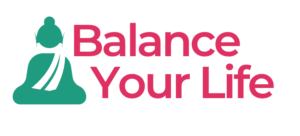 Before long, I realized that I was spending hours a day tracking everything I ate. And of course, I had to create recipes of common foods which took time figuring that out. I felt anxious and guilty if I didn’t track a meal or snack. How did this work for me?
Before long, I realized that I was spending hours a day tracking everything I ate. And of course, I had to create recipes of common foods which took time figuring that out. I felt anxious and guilty if I didn’t track a meal or snack. How did this work for me?
At some point, my partner in life stepped in and asked me what was taking up all my time on my phone. I explained that I was counting calories and other nutrients in my diet. She asked a simple question, “After the 3 weeks I have spent so far, had my health or weight improved?” That was an eye-opening question because, of course, nothing had improved. Instead, I realized my mental state had degraded – I was anxious about eating. And calorie counting had started to control my decision making on what I ate.
So, while I focused intently on my nutrition, I neglected my mind. And calorie counting was starting to turn into a self-imposed eating disorder. In fact, Simpson and Mazzeo report in the NIH library that counting calories can lead to eating disorders.
This is but one example of not living a balanced lifestyle. Click the button to find out how to balance your lifestyle and what, exactly, that means.

 Hi, I’m Kirby Chapman, the creator behind The Healthy League. You can read about
Hi, I’m Kirby Chapman, the creator behind The Healthy League. You can read about